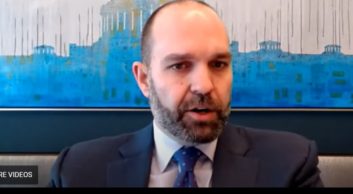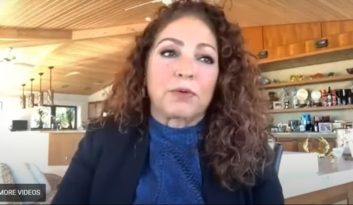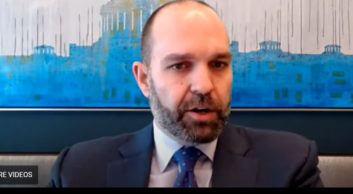Performance royalties are back in the spotlight on Capitol Hill.
The House Judiciary Committee held a virtual hearing about the proposed American Music Fairness Act.
 NAB President/CEO Curtis LeGeyt said that four years ago, the same committee asked the broadcast and music industries to work together to develop a proposal on the terrestrial performance royalty issue. He said NAB “worked for more than 18 months and offered numerous proposals to our industry partners behind closed doors that aimed to achieve that goal. … When our concepts were rebuffed, we came back to the table with new ideas time and time again.”
NAB President/CEO Curtis LeGeyt said that four years ago, the same committee asked the broadcast and music industries to work together to develop a proposal on the terrestrial performance royalty issue. He said NAB “worked for more than 18 months and offered numerous proposals to our industry partners behind closed doors that aimed to achieve that goal. … When our concepts were rebuffed, we came back to the table with new ideas time and time again.”
LeGeyt said, “Unfortunately, the music industry was unwilling to do its part in these negotiations. … [A]s a result, we find ourselves in this hearing room today debating a performance fee proposal that is strikingly similar to its predecessors.”
[Related: Hybrid Radio and the Royalties Question]
He reiterated arguments that broadcasters have made before: that a new royalty on local radio is “financially untenable for broadcasters of all sizes and unjustified as a matter of policy,” that there is a lot of support among legislators for competing legislation called the Local Radio Freedom Act, and that artists themselves frequently acknowledge the importance of radio in their success.
 Among those weighing in on the other side was singer and songwriter Gloria Estefan.
Among those weighing in on the other side was singer and songwriter Gloria Estefan.
She described herself as “a very big fan of radio and its place in music.” But she told the legislators, “Each of the songs that are precious and meaningful to you was a labor of love for the songwriters, the artists, the musicians and producers that brought it to life. … But when their music is played on the radio, artists don’t get paid, only the songwriters do. The radio stations benefit from the advertising dollars. But the artists that breathed life into a song, the featured artists, the singers, producers and studio musicians, are left out.”
Estefan said this can be particularly problematic for older artists whose songs still get airplay.
“It simply doesn’t make sense that artists are not being paid when their music is played on one specific platform: AM/FM radio. Why hasn’t this been rectified sooner? … Every industrialized country except the United States provides a performance right. … Artists respect broadcast companies; all we are asking is for them to respect us back.”
And in a filed statement, Michael Huppe, president/CEO of SoundExchange, said the lack of performance rights to artists or labels “is one of the most egregious injustices that exists today in the U.S. music industry.”
He said the proposed legislation grants royalties to music creators “while protecting small broadcasters by limiting their annual payments for playing music to $500, less than $1.40 a day. And qualified public, college and noncommercial stations would pay only $100.”
Hopppe specifically criticized iHeartMedia for declining to appear. “If iHeart seeks to continue denying music creators fundamental respect, they should have the decency to do it to their faces and explain their justification.”
You can watch the full three-hour hearing online.
Comment on this or any article. Write to [email protected].
The post Radio and Performers Are Back, Arguing Over Royalties appeared first on Radio World.
